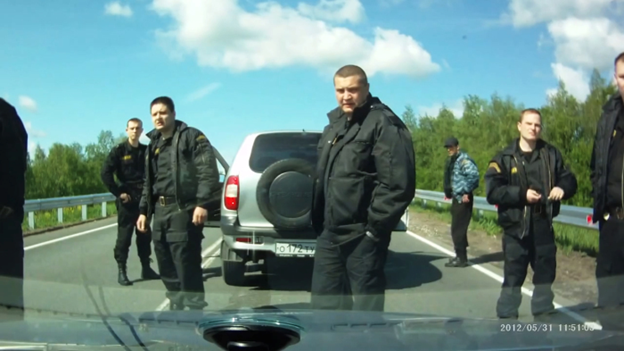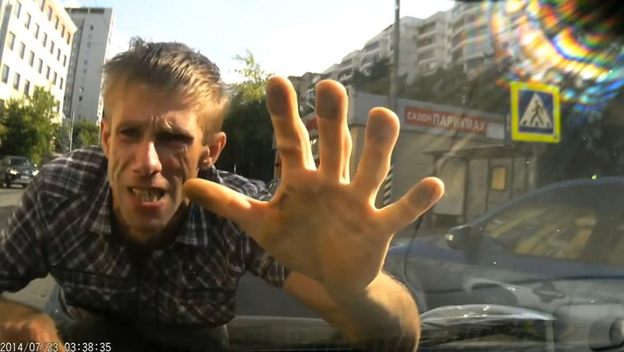This article previously appeared on Crossfader
Director: Dimitrii Kalashnikov
Genre: Documentary
Year: 2018
The collapse of the Soviet Union and all of its allied communist neighbors is an event the public ought to engage with more often than they currently do. Perhaps the most illuminating truth buried in the opaque shadows of shifting governmental tides is how much this fragmentation, and ensuing reassembly, of power can affect culture, behavior, and identity at large. I would know this: I’m Romanian myself. As much as foreigners love to inquire about the stress of living in a communist nation, what few people understand is how much of this lifestyle has transitioned into the next generation. After all, if the apple doesn’t fall too far from the tree, then one can surmise that those alive in Russia today still live a life as trepidatious and skeptical as their parents did under the iron curtain.
That is to say, a nation’s political history is sure to influence the way its people behave. As Romanians, we’re prone to skepticism—that’s just what being raised in perpetual fear of surveillance will do to you. Much in the same way, we’re ardently cynical, an inevitable consequence of growing up in a nation where the government can’t successfully pave a road to save their life. Which brings me to Dmitrii Kalashnikov and his explosive documentary, THE ROAD MOVIE. If there’s one thing I’ve been on the hunt for, it’s a socio-political discourse that evades talking heads entirely. It seems Kalashnikov has found the perfect conduit for this dialogue. As much as the average viewer may want to believe it, THE ROAD MOVIE is much more than a LiveLeak compilation series. It’s a microcosm of Russian identity, all neatly packaged in the cloak of archival dash cam footage.

I mean, holy shit
The ingenuity is evident from frame one, in which a snowed-out car window uses its wipers to slowly rub out each ensuing title card. It’s a slow, oddly beautiful prologue to an electrifying character study. What’s more, it sets an essential precedent, namely the fact that there are only three fields of view on THE ROAD MOVIE: the street, the window, and the people in the car. It’s completely understandable to go into THE ROAD MOVIE expecting a 67-minute montage of high voltage accidents, and although Kalashnikov certainly delivers on this front, his film is far more concerned with the before and after. Any veteran LiveLeak viewer knows that THE ROAD MOVIE doesn’t necessarily present the world’s worst car crashes, but much rather the most interesting sights and sounds of the Russian landscape. We really get to know the inhabitants of our vehicles, even if we never see their faces. It’s a film that finds its footing in each nihilistic, fearful, or unfathomably calm dialogue preceding or ensuing a cataclysmic accident.
At the end of the day, there is an essential meta framework that must be considered in THE ROAD MOVIE: the camera. Russian dash cams are somewhat of a worldly phenomena, an invention birthed in response to the country’s rampant police corruption. It’s a rather populist tool, a means of holding authorities accountable for their actions. Ironically, it tips the concept of the surveillance state on its head: people filming one another in constant fear that their neighbor may try and harm them. It’s something that becomes devastatingly prescient when THE ROAD MOVIE cuts to a clip of a couple being harassed by two vans full of angry security guards; naturally, once the guards are made aware of the dash cam, they retreat. It’s moments like these that shape THE ROAD MOVIE. We aren’t here to empathize with a single character, we’re here to quantify how differently a populous values their cars, their lives, and their security.

Dear Lord
If you survived the infernal reign of Lenin, then you can sure as Hell safely drive through a burning forest. If the secret service didn’t get to you in 1980, then no car crash can wreck you. And if you live in a climate so cold that an icy road renders your brakes useless, you’ve got a justifiably icy personality. Kalashnikov’s unorthodox documentary isn’t a study of a person, but rather a people. It examines how a nation approaches driving as a fearless task. After all, what’s the use in crying over a totaled car—wasn’t the darn thing built to keep you safe in the first place? THE ROAD MOVIE knows that the dash cam is not only quintessentially Russian, but somewhat of a voyeuristic glance into a world shaped by changing tides in government and brutally cold winters. Perhaps the only thing that has been left unchanged is the Russian people’s strength to carry on, with a vodka on hand to calm the nerves. Just be careful about drinking and driving—if you ride like lightning, you’re going to crash like thunder.
Verdict: Recommend















Comments